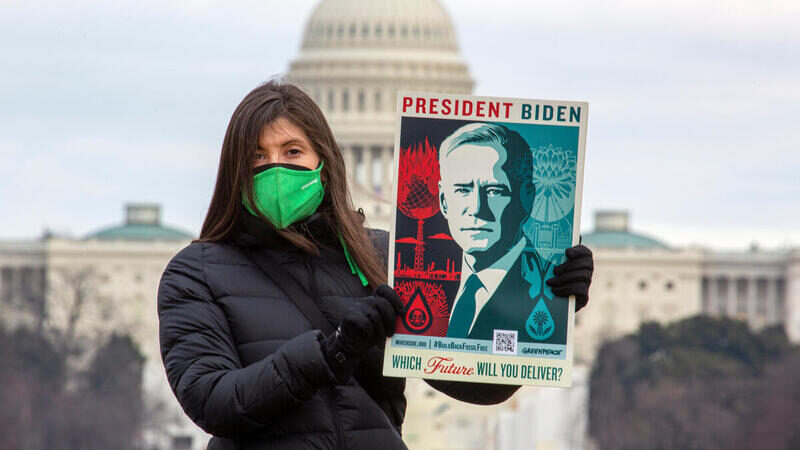Joe Biden’s plan to give $1.2 billion to the Green Climate Fund (GCF) is “not enough” to make up for missed US payments, campaigners have said.
The US President has asked Congress for a 12% increase in funding for the State department and other international programmes in the fiscal year October 2021 to September 2022.
This proposal, which will be debated and used as guidance by Congress, includes a $1.2bn contribution to the UN-backed GCF and $1.3bn for other bilateral and multilateral climate programmes.
Climate campaigners in the US, South Africa and the Phillipines said that the Biden administration should give more to the fund, which helps developing countries reduce their emissions and adapt to the effects of climate change.
Alex Lenferna, a Johannesburg-based campaigner at 350 Africa, told Climate Home News that $1.2bn was an “insult to the Global South”. He said: “If you add up all the climate damage that has been done through years of US delay, denial, obstruction of climate action, it adds up to the trillions not the billions. So this $1.2bn is really a slap in the face.”
World Resources Institute’s Joe Thwaites said: “This puts the US back in the game but falls short of what is needed to restore America’s global credibility on climate.”
Under Barack Obama, the US promised $3bn to fund but had only handed out $1bn before Donald Trump withdrew US support from the GCF. The Biden administration has promised to “make good” on Obama’s promise but the $1.2bn falls short of the $2bn it owes.
In 2019, several donor countries doubled their original funding to the GCF including France, Germany, Sweden, Norway and the UK.
In February 2021, US campaigners urged Biden to give $8bn to the GCF, to catch up with other contributors.
In March, 40 Democratic members of the House of Representatives wrote asking Biden to send $4bn to the GCF in this fiscal year, to fulfil the $2bn outstanding pledge and as the first installment of a new $6bn pledge.
Lidy Nacpil, co-ordinator of the Asian Peoples Movement on Debt and Development, said $1.2bn was “not enough” for the US to make up the balance of what Obama promised or its failure to increase its pledge in 2019.
She added it was “certainly not enough in terms of US share in the obligations for climate finance delivery that should be a minimum of $100 billion a year based on Paris Agreement targets – and several times more than that based on actual need”.
This contribution would make the US one of the biggest donors to the fund but behind France, Germany and Japan.
Total signs deal to build East African oil pipeline, despite lack of finance
Separate to his budget proposal, Biden is seeking approval from Congress for a $2 trillion infrastructure spending bill, much of which will be spent on climate programmes like railways, electric vehicles, clean energy and adapting to the effects of climate change.
Lenferna contrasted the US’ large domestic spending to its funding for the GCF. “The idea that the world should deal with the pittance that is $1.2bn I think is just orders of magnitude short of what is required.”
Whistleblowers from the GCF have questioned whether it is the right vehicle for climate finance. Former staff told Climate Home News the organisation had a hostile working environment and a lack of integrity under political pressure. They urged the US to take its money elsewhere until the fund’s “toxic” work culture was fixed.
Action Aid USA’s director of policy and campaigns Brandon Wu said that, despite its flaws, the GCF was “still the best multilateral channel for climate finance”.
“Civil society organisations have been working to correct many of these shortcomings ever since the GCF’s inception. The GCF has not yet lived up to its full potential, but its foundational principles are strong and governments must work to strengthen these,” he added.
